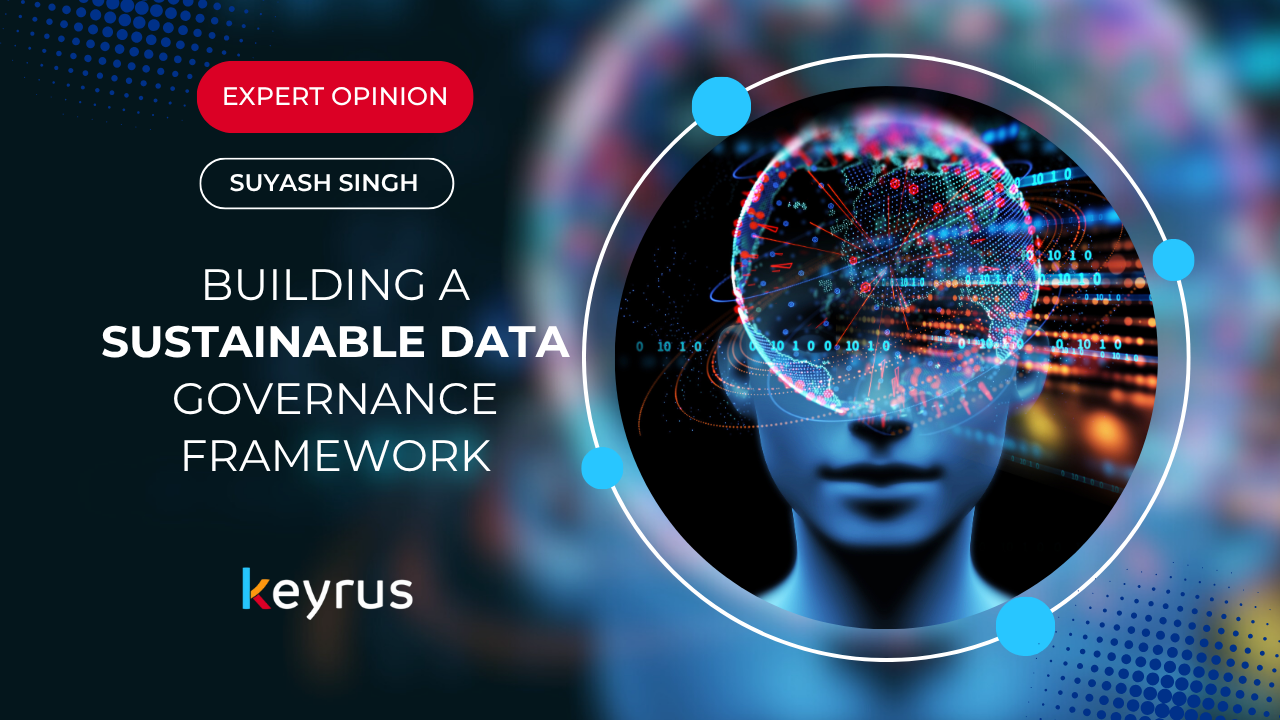The Hidden Reasons Behind Failing Data Governance Initiatives
In my years as a data strategy professional at Keyrus UK, I've witnessed countless data governance initiatives launch with tremendous enthusiasm, only to see that energy dissipate within 12-24 months. Despite the widespread recognition that effective data governance is crucial for modern enterprises, the reality is sobering, with approximately 70% of data governance implementations struggling to deliver sustainable value. Why does this happen? And more importantly, how can your organisation avoid becoming another statistic in the long list of data governance failures?
The All-Too-Common Data Governance Narrative
If your organisation's data governance strategy follows a familiar pattern, you're not alone. The cycle typically unfolds like this:
Leadership recognises the need for better data governance
A federated or hybrid model is adopted
Global teams eagerly define governance frameworks
Local teams attempt implementation with varying autonomy
Initial progress creates optimism
Complexity mounts, and momentum slows
Business value becomes increasingly difficult to demonstrate
The initiative gradually loses steam and priority
Sound familiar? As a Principal Consultant working with enterprises across various sectors, I've noticed that these common data governance challenges repeatedly derail transformative initiatives. The good news is that these pitfalls are entirely avoidable with the right approach.
Four Critical Differentiators for Sustainable Data Governance
Based on my experience implementing successful data governance frameworks across diverse organisations, I've identified four key differentiators that separate sustainable programs from those that fade away:
1. Clearly Define Business Drivers
The fundamental purpose of any effective data governance initiative should be to reduce friction between data producers and consumers. This vision must cascade through both global and local teams with perfect alignment.
A common misconception I encounter is treating the construction of a business glossary as a primary objective. Let me be clear: building a glossary is not a business driver—it's merely a means to enable one. This distinction is crucial for making data-driven decisions. When working with clients on enterprise data management transformations, I always begin by establishing concrete business drivers specific to their organisation:
Reducing time-to-insight for critical business decisions
Improving data quality for customer-facing processes
Enhancing regulatory compliance capabilities
Enabling more agile product innovation
Without these articulated drivers, data governance best practices remain theoretical exercises rather than practical solutions.
2. Identify the Right Use Cases
For data governance to demonstrate tangible value, organisations must focus on use cases where business value is both realisable and measurable. One particularly effective metric I've employed with clients is tracking the reduction in time required for data consumers to source trusted data from producers. When this metric improves from weeks to days or even hours, the business impact becomes undeniable. A critical success factor here is ensuring that ownership of use case identification is jointly held by global and local teams. This shared accountability is a cornerstone of data ownership and prevents the disconnection that often leads to data governance pitfalls.
3. People and Organisation First, Technology Second
One of the most prevalent mistakes I see in data governance implementation is allowing the capabilities of a specific tool to drive the initiative. This technology-first approach almost invariably leads to failure. Sustainable success in data governance lies in defining the right organisational structure and identifying the right people to own and drive the effort. Data ownership and stewardship roles must be clearly defined, properly resourced, and meaningfully integrated into existing workflows and responsibilities. The technology should support your organisational model, not the other way around. When evaluating data governance tools, the question shouldn't be "What can this tool do?" but rather "How will this tool enable our people to execute our defined processes?"
4. Define a Focused Implementation Scope
Perhaps the most practical advice I can offer for improving data governance outcomes is to carefully scope your initial implementation. Many initiatives stumble by attempting to catalogue operational data sources first—a path fraught with complexity. Operational systems typically:
Require diverse connectors
Challenge automation (especially for lineage)
Contains data that adds limited analytical value
Involve multiple stakeholders with competing priorities
Instead, focus your first wave on the analytical data layer—data lakes, warehouses, or mesh implementations—where the business value is highest and quickest to demonstrate. This approach builds momentum through visible wins and establishes patterns that can be extended to more complex domains later.
Sustainable Data Governance Programs for Digital Transformation
Data governance for digital transformation isn't merely a compliance exercise—it's a business enabler that should deliver continuous value. When implemented with these four differentiators in mind, governance becomes the foundation upon which truly data-driven organisations are built. By anchoring data governance initiatives in business value, shared ownership, and practical prioritisation, your organisation can prevent the fatigue that typically sets in after the initial implementation phase. Instead, you'll build momentum toward a sustainable, long-term program that evolves alongside your business needs. Remember that sustaining data governance programs requires ongoing attention and refinement.
The most successful initiatives I've led didn't simply implement and move on—they established mechanisms for regular assessment, adaptation, and value demonstration. The real reasons data governance is failing are rarely technical. They're human, organisational, and strategic. Address these dimensions thoughtfully, and your governance efforts won't just avoid losing steam—they'll accelerate your organisation's journey toward data-driven excellence.
Suyash Singh is a Principal Consultant and Data Expert at Keyrus UK, specialising in data strategy and governance implementations for enterprise organisations. With extensive experience across industries, Suyash helps clients transform their data capabilities into sustainable competitive advantages.
For further reading on Data Products, take a look at this exclusive insight: Data Products: Redefining Your Enterprise Strategy in 2025
